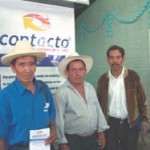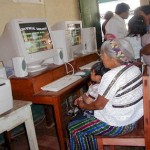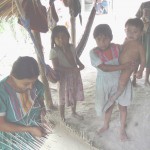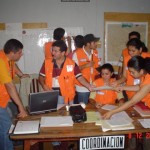In Guatemala, one out of every two children suffers from chronic malnutrition, leading to high levels of stunting and poor cognitive development. In the country’s rural, western highlands, however, indigenous women are beginning to empower their neighbors to grow and sell their own foods and prepare healthy, nutritious meals to improve the well-being of their families.

“Don” Felician Castellanos, a subsistence farmer in Guatemala, believes it is a miracle that he survived the massacres and disappearances caused by the violent civil war that hit his region. Although he never went to school, don Feliciano knew he wanted to read and write.

Some assume that rural indigenous populations are not ready for information technology, that they are not interested in it, and that, in any case, there is not enough basic infrastructure to extend technology from urban to rural areas.

In 2001, drought and the fall of world coffee prices exacerbated the already extreme poverty that afflicted rural Guatemalan families. A hunger crisis struck, forcing the Chortí Mayan women in Jocotán at times to have to decide between food and medicine.









Comment
Make a general inquiry or suggest an improvement.